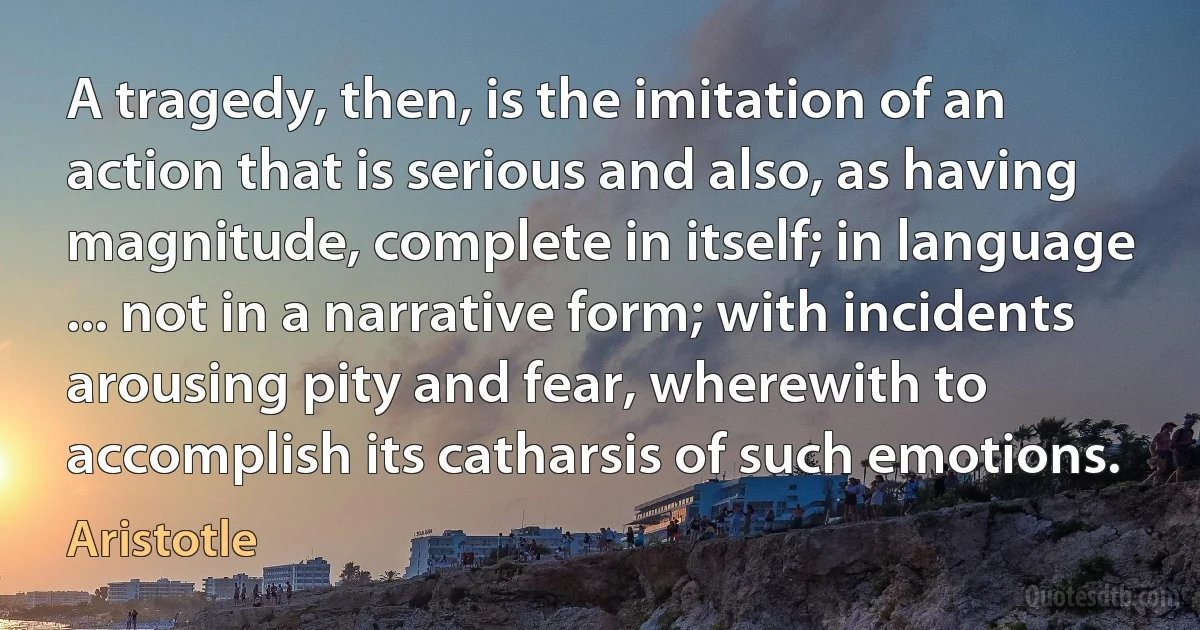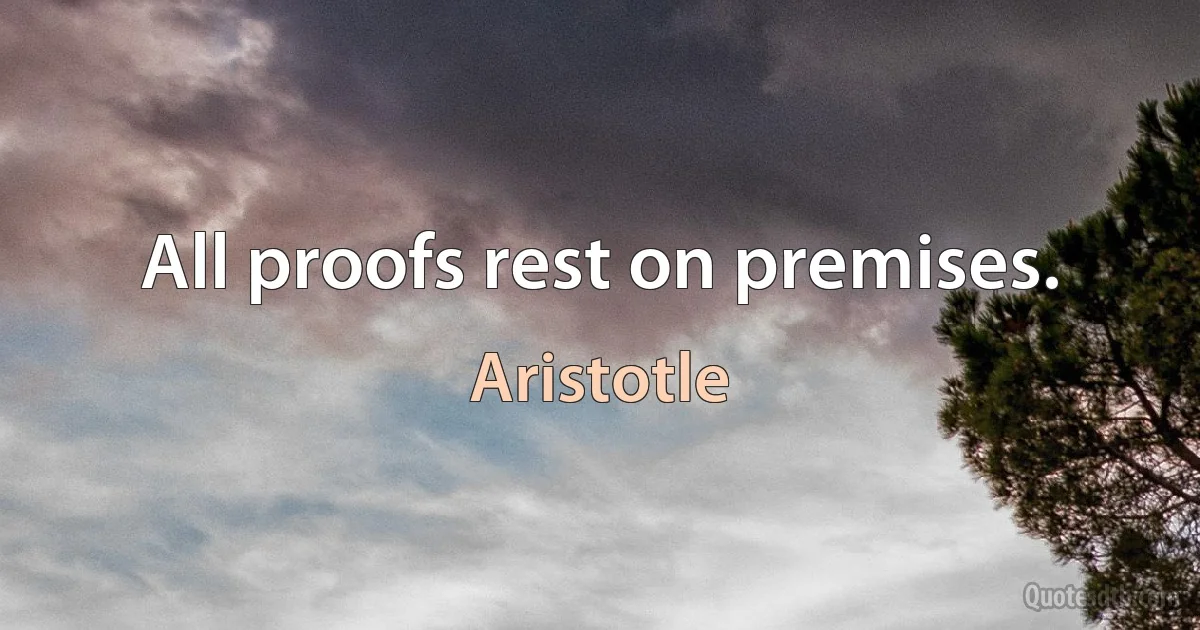Aristotle quotes - page 12
...suppose α without weight, but β possessing weight; and let α pass over space γδ, but β in the same time pass over a space γε,-for that which has weight will be carried through the larger space. If now the heavy body be divided in the proportion that space γε bears to γδ, ... and if the whole is carried through the whole space γε, then it must be that a part in the same time would be carried through γδ...

Aristotle
And surely to know what this good is, is of great importance for the conduct of life, for in that case we shall be like archers shooting at a definite mark, and shall be more likely to do what is right. But, if this is the case, we must try to comprehend, in outline at least, what it is and to which of the sciences it belongs. (Bk I, Ch I)

Aristotle
Perhaps then we must begin with such facts as are known to us from individual experience. It is necessary therefore that the person who is to study, with any tolerable chance of profit, the principles of nobleness and justice and politics generally, should have received a good moral training. (Bk I, Ch II)

Aristotle
For some identify happiness with virtue, some with practical wisdom, others with a kind of philosophic wisdom, others with these, or one of these, accompanied by pleasure or not without pleasure; while others include also external prosperity. Now ... it is not probable that these should be entirely mistaken, but rather that they should be right in at least some one respect or even in most respects.

Aristotle
For pleasure is a state of soul, and to each man that which he is said to be a lover of is pleasant.... Now for most men their pleasures are in conflict with one another because these are not by nature pleasant, but the lovers of what is noble find pleasant the things that are by nature pleasant; and virtuous actions are such... Happiness then is the best, noblest, and most pleasant thing in the world, and these attributes are not severed as in the inscription at Delos: Most noble is that which is justest, and best is health; but pleasantest is it to win what we love.

Aristotle



